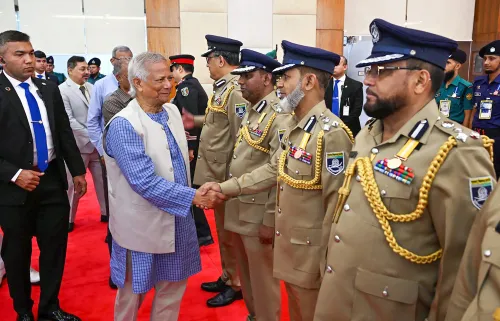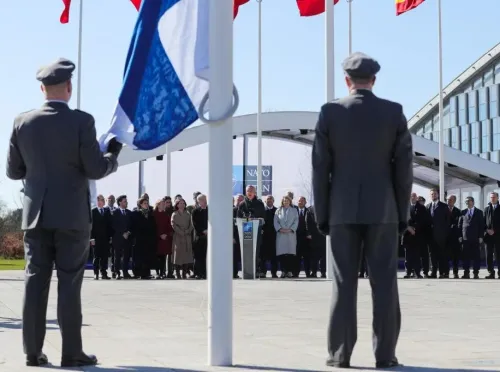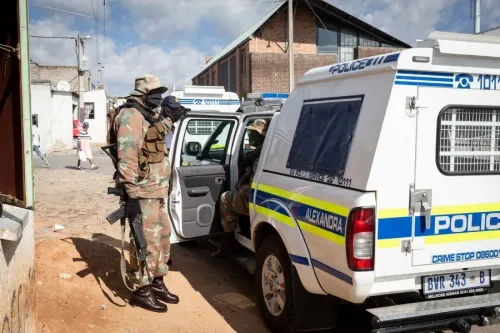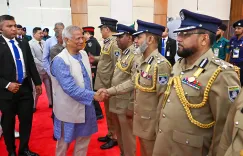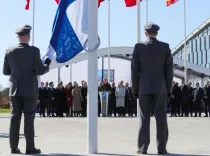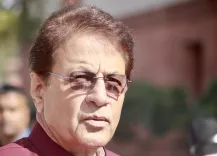What are the various dimensions of bilateral cooperation? EAM Jaishankar tells German counterpart
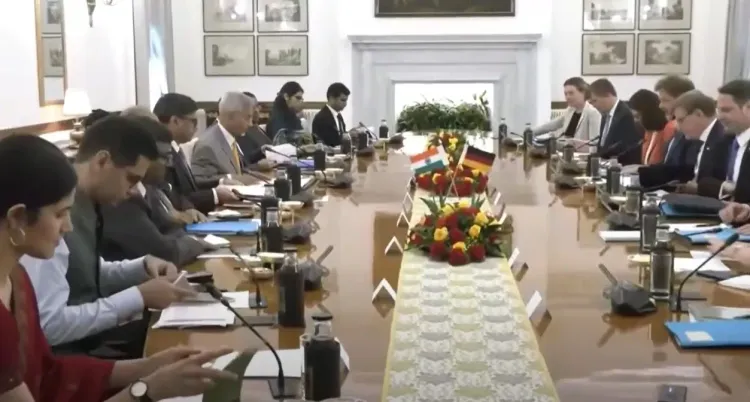
Synopsis
Key Takeaways
- Strengthening bilateral ties: India and Germany aim to enhance their strategic partnership.
- Focus on trade: Discussions will include accelerating FTA negotiations.
- Technological collaboration: Emphasis on cooperation in technology sectors.
- Support for EU relations: India seeks Germany's backing in deepening EU ties.
- Historical connections: Celebrating decades of collaboration between both nations.
New Delhi, Sep 3 (NationPress) Emphasizing the rich history of multilateral collaboration between India and Germany, External Affairs Minister S. Jaishankar shared on Wednesday his anticipation for detailed discussions with his German counterpart, Johann Wadephul, regarding various facets of bilateral cooperation. He expressed optimism that today's discussions would further enhance the multilateral cooperation between the two nations.
During his opening remarks in the meeting with Wadephul, Jaishankar highlighted India's reliance on Germany's assistance to strengthen ties with the European Union and accelerate negotiations on the Free Trade Agreement (FTA).
He remarked, "As you mentioned prior to leaving Germany, we are celebrating 25 years of our strategic partnership, 50 years of scientific collaboration, nearly 60 years of cultural agreements, and over a century of business relations, as evident in Bangalore's potential for technological cooperation. I appreciate your visit to Bengaluru, where you witnessed our collaborative potential firsthand. It's also great that you brought a formidable business delegation and parliamentary members along with you.
"I eagerly anticipate a thorough discussion on the various aspects of our bilateral cooperation today. This will also lay the groundwork for fruitful intergovernmental consultations later. We look forward to hearing Germany's insights on critical global and regional issues. We depend on your support to deepen our relationship with the European Union and expedite the FTA negotiations. India and Germany share a significant legacy of multilateral cooperation, which I am confident will be furthered through our discussions today," he stated.
Jaishankar welcomed Johann Wadephul on his inaugural visit to India as Germany's Foreign Minister.
He added, "The timing of this visit, just a few months after my own trip to Berlin in May, speaks volumes. We recognize that this is one of your initial visits outside of Europe, and we greatly value your presence in India."
On Tuesday, the Ministry of External Affairs (MEA) spokesperson, Randhir Jaiswal, welcomed Johann Wadephul to India and expressed confidence that his engagements in Bengaluru and Delhi would enhance the strategic partnership between the two nations.
"Herzlich Willkommen to India! FM Johann Wadephul of Germany has arrived in New Delhi. His meetings in Bengaluru and Delhi will further augment the multifaceted India-Germany Strategic Partnership as we celebrate 25 years of its establishment," Jaiswal posted on X.
Before his departure for India, Johann Wadephul referred to India as a key partner in the Indo-Pacific and emphasized the closeness of the ties between the two nations. In a post on X, he stated, "India is a key partner in the Indo-Pacific. Our relations are close - politically, economically, and culturally. The expansion of our strategic partnership holds immense potential: from security collaboration to innovation and technology to the recruitment of skilled workers."
"India's voice, that of the world's most populous nation and largest democracy, resonates beyond the strategically crucial Indo-Pacific region. That is why I am traveling today for discussions in Bangalore and New Delhi," he added.
He underscored that India plays a pivotal role in shaping the international order of the current century, describing India and Germany as natural partners.
"India is instrumental in influencing the international order of our century. As democracies, we are natural allies in this endeavor. Given the enormous geopolitical challenges, we must work together to uphold the rules-based international order," Johann Wadephul noted on X.


